What, exactly, is a protest song? And which songs qualify for this revered category?
The protest song series
Welcome, everyone, to what I thought would be the last post in the protest song series.
But yesterday, in “A Change Better Come: Where Are All The New Protest Songs At?,” Sean Johnson observed that “there aren’t as many protest songs or songs that immediately speak to the zeitgeist as there used to be. In our turbulent and bat shit crazy times, I would think there would be a glut of these songs, but as far as I can see, there aren’t many if at all…”
He then explores why that might be. It speaks to something that’s been on my mind, which is what comes together to create the ‘perfect storm’ for effective protest music?
What are the external conditions and the artist qualities that combine to produce a protest song that speaks perfectly to the times, grabs people’s attention, and brings about truly significant change?
As a psychologist, that question intrigues me. I’m certainly keen to start writing about Women in Rock, but at the same time want to finish off this topic with a sense of having done it full and proper justice.
Protest music, as Sean Johnson points out, should be important in this crazy zeitgeist today. He’s right to ask, where are all the new protest songs at?
Is change gonna come, as Aretha promises above, if we don’t protest in song? (And, for that matter, in the legislatures and on the streets?)
If you have a take on that, or can name recent protest songs, please do respond in the comments.
But before we can even engage around that particular topic, have we reached any solid agreement yet on what, exactly, qualifies as a protest song?
Looking at some of the comments over the course of this series, it appears not.
We are not necessarily on the same page in that regard.
Let’s think this through a bit and see if we can reach any sort of conclusions, or if we’ll have to agree to disagree.
Or if we’ll have to write a protest song to protest against fake or unworthy protest songs claiming false legitimacy.
If anyone wants to take a serious stab at such a song, even the lyrics, that could be great fun.
OK, let’s jump in.
‘Protest’ is our middle name
Here’s a fundamental fact that we need to consider.
We come into this world protesting.
Unless we’re birthed by a midwife focused on gentleness and comfort in welcoming us into our new earthly existence, we tend to find ourselves forcibly pushed out of a warm, dark, comfortable cocoon where we’ve been crooned to, our tiny ears now assaulted by our mother’s screams and admonitions from others to “Push! Push!,” our little bodies grabbed and pulled out of Mom (or Mum) into an overly bright, noisy, matter-of-fact, and sometimes even hostile and frightening hospital environment.
Hey! Put me back! I don’t like this place.
What do we do? Protest.
And we have to keep doing so because ‘they’ keep doing dumb things. Like trying to force us to eat another bite of something “good for us.” We learn quickly how to avoid the insistent spoon and the ridiculous ‘fake airplane’ ruse by clamping our mouths shut and turning our heads. Bawling usually works if they won’t stop.
I know when my belly’s full! I don’t want that whole jar! You’re going to give me eating issues for life!
Protest is something we master in infancy and refine as we get older, moving on to a sit-down strike at the dinner table.
I will sit here all day if I have to. And when you’re not looking, I’ll find places to hide this garbage and pretend I’ve eaten it. [breaks into chanting] Who’s good? Kids in the hood! Who’s mean? Parents who make their kids eat broc and beans!
Heck, even animals protest, and they’re even better at it than we are. Witness captive chimpanzees and gorillas slinging poop at zoo visitors to make their point.
Stop staring, pointing, and laughing at us, stupid humans. It’s rude and aggressive, and we don’t like it. Get a load of this in your kisseroo!
Fortunately or unfortunately, depending on your point of view, a talent for protest gets socialized out of us sooner or later, one way or another.
Some of us are little heathens until we get to school. Some of us have our ‘rough edges’ smoothed out much earlier.
But there is one thing we know, for a fact, from both the historical record and our own experience. Modern western schooling is designed to stamp out our delight in, and our penchant for, innate and effective forms of protest, and transform us from uncivilized hooligans into acceptable and hopefully even exceptional members of so-called ‘polite society.’
And it seems to work — except for those pesky artists who insist on having their own voice and expressing themselves. Sharing their ‘vision’ of how the world is or how the world ought to be.
Those writers. Those poets. Those painters. Those musicians.
And, most especially, those — sneer accompanied by a look of outsized contempt from our self-important ‘authorities’ — jazz, blues, folk, rock, punk, hip hop, and rap musicians.
Orchestras, good. Opera, good. Big band, good. Crooners, good. Pop stars, good. Country western, who cares? (Those hillbillies and trailer trash are always singing about broken hearts and moonshine and pickup trucks, and using bad English like ‘ain’t,’ for crying out loud. Their education clearly didn’t ‘take.’ So who can take them seriously?1)
But, rock stars? Those guys protest everything.
Yes, usually guys. Young smartass guys with big hair, big attitudes, and big instruments who wanna tell you a thing or two.
They’re incorrigible hooligans, forever — for the rest of their lives — protesting the sensible dictum to eat your meat before you can have your pudding.
Or the logical directive to get in a straight line and march in silent formation. Children — and good employees and decent citizens — are meant to be seen and not heard.
Or the obviously reasonable and responsible guidance from your teacher (and later your boss and your government) to do your assigned work and stop all this poetry gibberish and artistic claptrap.
I mean, who in their right mind calls themself something as absurd and nonsensical as Pink Floyd. What does that even mean?!
And who makes a video protesting our hallowed educational system, like this? (Which is no longer available except from a private user, because it’s downright incendiary.)
Hooligans, that’s who!
As mentioned in the intro to this post, I want to delve much more deeply into the question of who, in particular, is more likely to write a deliberate and explicit protest song.
Can we say anything about these people? Like these Pink Floyd blokes?
I think we can.
And btw, yes, I do know that education has changed since those Pink Floyd chaps and I were in school. I did research in six U.S. school systems and found that they’re better in some ways, but worse in others. Depends a great deal on whether the school is public or private (state vs. public/private in the UK), where it’s located, the funding it receives, and its educational philosophy and approach. Leadership makes a big difference too.
Thank heaven they didn’t ‘grow up’
The fact of the matter is, disgruntled and outspoken songwriters and musicians are doing the heavy lifting for us.
They are the proverbial canary in the coal mine, signaling when we are in danger.
In danger of what, you may ask?
If we look at the protest songs highlighted in this series, both those that I profiled and those chosen as favorites by other substack writers (here, here, and here), we see some clear patterns.
Songs that protest against the political or economic realities and hardships under which we have been living are the most numerous.
These stretch a long way back, from traditional Irish songs of rebellion against the English as old as 1798, recorded by the Clancy Brothers in the mid-1950s (in their Aran jumpers below), through American, African, and European songs since then that cover almost six decades of outrage at current political and economic circumstances, to an all-purpose “Everything needs to be better!” song by the Amsterdam band Hang Youth that came out in 2020.
Here’s what we’ve covered that I would categorize as Songs of Political and Economic Protest:
“Whack Fol the Diddle” by the Clancy Brothers (1956)
“Eve of Destruction” by Barry McGuire (1965)
“The Sins of a Family” by P.F. Sloan (1965)
“Abraham, Martin and John” by Dion (1968)
“Percy’s Song” by Fairport Convention (1969)
“Something in the Air” by Thunderclap Newman (1969)
“Working Class Hero” by John Lennon (1970)
“Find the Cost of Freedom” by Crosby Stills Nash & Young (1970)
"What's Going On" by Marvin Gaye (1971)
“Harvest for the World” by the Isley Brothers (1976)
“Zombie” by Fela Kuti (1976)
“Takin’ It to the Streets” by the Doobie Brothers (1976)
“God Save the Queen” by the Sex Pistols (1977)
“California Über Alles” by the Dead Kennedys (1979)
“There Is Power in a Union” by Billy Bragg (1986)
“Sunday Bloody Sunday” by U2 (1988)
“Corruption” by Thomas Mapfumo & the Blacks Unlimited (1989)
“Miner’s Lullaby” by ‘Utah’ Phillips, Jody Stecher, and Kate Brislin (1997)
“Waltzing Matilda” by Slim Dusty (1999)
“Tragedy of the Commons” by Delain (2014)
“Thoughts and Prayers” by Drive-By Truckers (2020)
“Fulfilment Center” by Richard Dawson (2020)
“Alles Moet Better” by Hang Youth (2020)
Although they could fall in the same category, I think it’s telling to separate out songs that are protesting against war and in favor of peace, as an important protest song phenomenon that gathered pace in the early sixties with the Vietnam War.
These are the Songs Against War and for Peace:
“The Ballad of Ira Hayes” by Peter LaFarge (1962)
“Blowin’ in the Wind” by Bob Dylan (1963)
“Masters of War” by Bob Dylan/Judy Collins (1963)
“Draft Dodger Rag” by Phil Ochs (1967)
“An Untitled Protest” by Country Joe & The Fish (1968)
"Gimme Shelter" by the Rolling Stones (1969)
"Sweet Cherry Wine" by Tommy James & the Shondells (1969)
"Give Peace a Chance" - Plastic Ono Band (1969)
"Ohio" by Crosby, Stills, Nash & Young (1970)
"War" by Edwin Starr (1970)
“The Night They Drove Old Dixie Down” by Joan Baez (1971)
“I Wanna Destroy You” by the Soft Boys (1980)
“Paid Vacation” by the Circle Jerks (1981)
“If I Had a Rocket Launcher” by Bruce Cockburn (1984)
“Mickey” by Spear of Destiny (1985)
We might also want to separate out songs focused strictly on protesting against inequality and in favor of civil rights, or Equal Rights Songs:
“Mississippi Goddam” by Nina Simone (1964)
“If I Can Dream” by Elvis Presley (1968)
“Sun City” by Artists United Against Apartheid (1985)
Or songs focused only on environmental destruction, or Save Mother Earth Songs:
"Big Yellow Taxi" - Joni Mitchell (1970)
“Ol' Mother Earth” by Tony Joe White (1973)
“The Seed” by Aurora (2019)
Another very interesting phenomenon that arose in the sixties — following a post- World War II era characterized by extreme and stifling conformity — was the growth of a counter-cultural attitude characterized by a ‘don’t-tell-me-what-to-say-or-do-or-wear-or-how-long-to-grow-my-hair’ individualism, captured in a wide array of Social Protest Songs:
“Laugh at Me” by Sonny Bono (1965)
“You Gotta Be Kidding” by Wayne Robins/The Mongs (1965)
“Too Many People” by The Leaves (1966)
"For What It's Worth (Stop, Hey What's That Sound)" by Buffalo Springfield (1966)
“Harper Valley PTA” by Jeannie C. Riley (1968)
“People Got to Be Free” by the Rascals (1968)
"Signs" by the Five Man Electrical Band (1971)
There were also some ‘protest’ songs expressing bewilderment over the state of things, like ‘Hey, man, why can’t we just figure things out, tell the truth, and get along?’ Maybe we can call these the Protest Against Discord Songs:
“Get Together” by The Youngbloods (1967)
“Everyday People” by Sly & the Family Stone (1969)
“21st Century Schizoid Man” by King Crimson (1969)
"Ball of Confusion (That's What the World Is Today)" by the Temptations (1970)
"Tell It Like It T-I-Is" by the B-52s (1992)
“American Requiem” by Beyoncé (2024)
Even more pointed are what I call Personal Protest Songs, which bemoan a deficit of love and respect at the individual level that, doggone it, shouldn’t be happening and needs to be addressed:
“Smiling Faces Sometimes” by the Undisputed Truth (1971)
“Back Stabbers” by the O’Jays (1972)
“You’re Breakin’ My Heart” by Nilsson (1972)
“Respect Yourself” by the Staple Singers (1972) — a must-watch below!
“The Want of a Nail” by Todd Rundgren (1989)
The above is how I would categorize things at this moment in time. You can slice and dice these songs into a myriad of categories.
It all depends on who’s doing the slicing and dicing.
How would you do it? Perhaps your knife is sharper than mine and you would slice things finer. Or have very different categories.
Or perhaps you would get rid of a lot of the ingredients, disqualifying many of these as protest songs.
Maybe you’re a purist when it comes to protest songs. You would be in good company. I suspect there could be quite a few of you. Let’s talk about that.
Does a protest song require protesters plural?
When we think about protest, the first thing that comes to mind for most of us will be a public protest or a protest movement.
People plural.
The generally accepted definition of ‘protest,’ in these terms, is people organizing or congregating to raise their voice together against something they, as a group of humans, perceive to be wrong and even destructive.
In other words, a ‘cause.’
Using this definition of protest raises some obvious issues.
If someone protests something — like the guy protesting the Washington Redskins name below, apparently for seven years — and no one is joining them in that protest, does that invalidate or negate their protest? In other words, is a protest only legitimate and worthwhile if others approve and validate it?
If you look at origin stories, you find that religious, spiritual, political, economic, and other kinds of movements often begin with one lone voice crying in the wilderness.
Humans tend to cling to the status quo until it gets too uncomfortable for them to continue doing so. They have to reach a tipping point where the cost becomes too high before they are usually willing to change.
In my view, we can’t invalidate a protest song if there’s no cause or movement behind it yet. That protester may be the next Gandhi or Martin Luther King, Jr. or, as Sean Johnson points out, Sinead O’Connor protesting against the role and influence of the Catholic Church.
Indeed, we can’t invalidate it as a protest song even if there’s no movement behind it ever. Because we know that some geniuses and people with incredible foresight never get their proper due during their own lifetime, and yet have incredible influence over those who come later and who reflect that protest spirit or idea in their own work.
Look at Robert Johnson’s influence in terms of musicianship, themes, and lyrics on a range of musicians, inluding Bob Dylan and the Rolling Stones, both with protest songs covered in this series.
Richard Elliott has written about this very topic in his recent post called “Songs About Musicians #2: Protest Singers.”
“Guthrie, Dylan, Jara, Ochs, Bragg, Kristofferson, O'Connor. But who's singing about whom?,” he asks.
Should pissing people off be the litmus test?
Is it about questioning something that others hold as right or dear?
Like Joni Mitchell pointing out how people are exchanging paradise for parking lots and consider it a fair trade if they can stay for a week in a high-rise hotel right on the beach in Waikiki. What about the other 51 weeks? What about the impact of all that concrete on the shoreline, or the aesthetics, or the people who live there?
Or like Aurora half a century later, taking the criticism even further in her song “The Seed,” warning that “You cannot eat money, oh no, When the last tree has fallen And the rivers are poisoned.”
Is it about pointing out human ignorance and thoughtlessness and folly like this, or must it, by definition, be protest about something that is being done with some degree of wrongdoing or bad intent?
After all, you’d have to be living in a cave not to know about environmental degradation and threats to the ecosystem, no matter what you think is causing it or what you believe the proper solution to be.
Doesn’t protest assume that someone with some power to alleviate the situation is not doing what they should do?
That, in fact, they’re often doing the opposite? Like tourists whose only concern is how far they are from the beach? Or parents whose only concern is that you finish that jar of pureed carrots? Or the government sending off young men to die in a senseless war and killing students who protest against it, as covered in the song “Ohio”?
Isn’t there an assumption behind a protest, and indeed behind a protest song? This is bad!
Bad enough for me to feel compelled to protest about it, to bring it to everyone’s attention.
Stop this shite, say the monkeys and gorillas, or we’ll throw the literal thing at you.
Stop this shite, say the musicians, or we will throw the next best thing at you. Words that blame, shame, and defame. We will make you look bad, maybe for the rest of your life. Maybe forever.
You wanna do bad, get ready to look bad. You asked for it. You got it.
Here’s my little tune being heard by hundreds, or maybe thousands, or millions, or billions of people.
Let’s just hope they listen to the lyrics — and get the message.
Or am I wrong? Can a song promoting a positive vision of a better future be a protest song — by pointing out our underwhelming and inadequate present?2
Should paying a price be the surest indicator of a protest song?
If a tree falls in the forest and there’s no one there to hear it…
Or, perhaps your koan of choice is ‘what is the sound of one hand clapping’?
Translating that into rock ’n’ roll-ese, if you put out a song about sweet cherry wine and no one knows it’s about the blood of Christ and a protest against the Vietnam War, and instead everyone thinks it’s about a delicious red alcoholic beverage, does that count as a protest song?
Tommy James and the Shondells might have been less obtuse and more direct, if they hadn’t been working for a Mafia-owned record label and under constant pressure to produce hits.
Or does it count when a protest song sounds like schlocky pop?
Or when it’s a dance classic and no one listens to the words because they’re too busy discoing down or voguing?
At the other end of the spectrum, does it count when you just wanted people to think about the fact that, hey, we’re kind of on the eve of destruction here, guys, and maybe we might want to pull things back a bit, and then, much to your surprise and dismay, they ban you from the radio, write you hate letters3, and destroy your career?
Not to mention, on top of all that, one of the leading lights of the folk movement and a protester par excellence in demonstrations and in songs, Mister Phil Ochs, criticizes the quality of your song as terrible and its philosophy as “juvenile”?
Does that invalidate your freshman effort as a protest song purveyor?
Must one have the right sort of experience or the right musical or philosophical pedigree to be taken seriously?4
Is inciting a severe reaction in the powers-that-be not enough? Must one be a punk rocker or influenced by someone like Woody Guthrie or Pete Seeger?
This is no small question when the very song being criticized by Phil Ochs was the only song that can lay claim to bringing about an amendment to the US Constitution.5
Were P.F. Sloan and Barry McGuire protest song dilettantes when they wrote and recorded “Eve of Destruction”?
Were they lacking in protest song cred?
What defines a successful protest song?
I’m going to suggest that when a government tries to stop you or destroy you through any means, as they did with Nigerian musician and activist Fela Kuti, your protest song activity is an off-the-charts success.
I’m going to suggest that contributing to the fall of apartheid in South Africa, to the passage of a Constitutional amendment, and to the cessation of the War in Vietnam are obvious successes of rock ’n’ roll protest music.6
I’m also going to suggest that it doesn’t matter if the artist insists that their offering is not a protest song, like the young Bob Dylan. We cannot blame artists for trying to maintain an innocuous profile, avoid the blowback from the powers-that-be, and live to sing another day. Particularly when those powers-that-be run the most powerful government on the planet.
P.F. Sloan and Barry McGuire were run out of the business for “Eve of Destruction,” and Little Steven believed that he had already ruined his own career when he did “Sun City.” When effective, protest music does, in fact, have the potential to destroy a musician’s life.
The most important thing I’m going to suggest is this. Just because artists are the canaries in the coal mine does not mean that they should be the ones to die to save us. Their job is to warn us that’s something’s wrong — and entertain us.
It’s our damn job to keep the mine safe and preserve everyone’s lives, including theirs. Or better yet, escape that dark, dirty mine and create a brighter, healthier, and freer world worth living in and leaving to our rock ’n’ roll progeny.
Beyond that, I don’t have answers. Just these brief and incomplete musings.
What do you think? Hit me with your best shot in the comments.
I hope you get that this is satire. Don’t y’all get any beliefs that I don’t love hillbilly folk or country music.
Am I doing your head in? Apologies.
Or love letters, if they’re young female fans who see you as a handsome hero.
Is it not enough that you were inspired and directed by an angel — in P.F. Sloan’s case?
The Twenty-sixth Amendment to the United States Constitution was ratified in 1971 and gave American youth voting rights at age 18, the same age when they were considered old enough to be sent off to war.
Note that I include ‘rock music’ (aka classic rock) under ‘rock ’n’ roll,’ unlike others who see them as two separate musical eras.




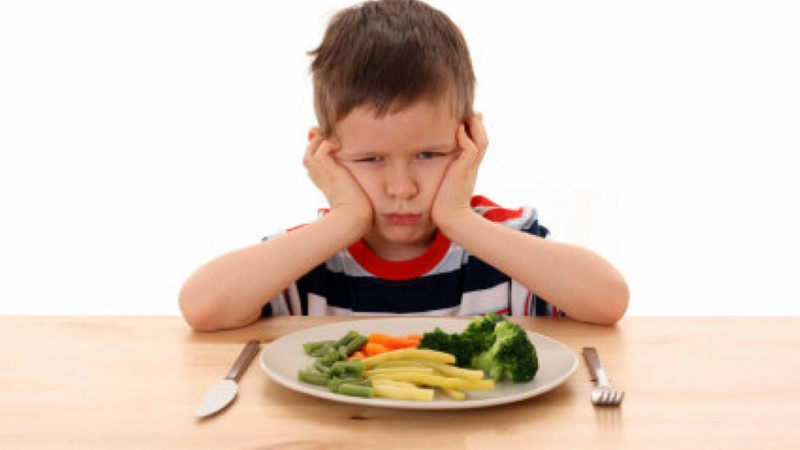
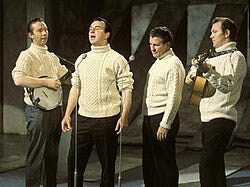


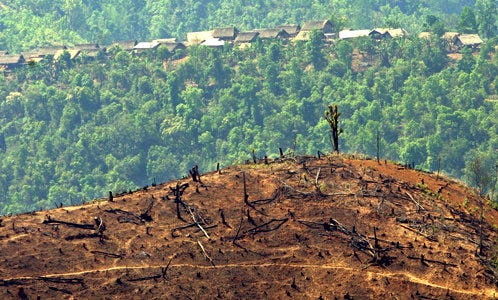

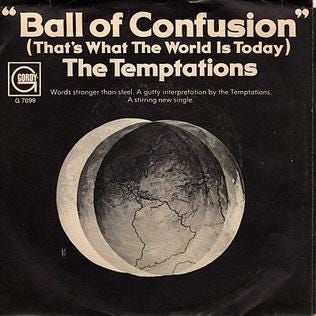
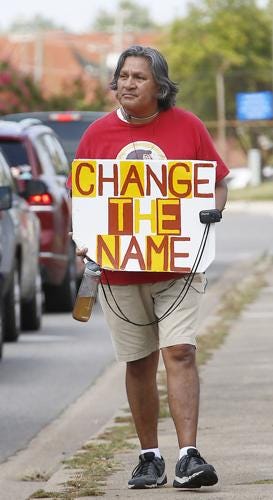
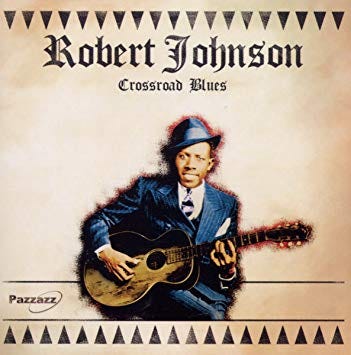
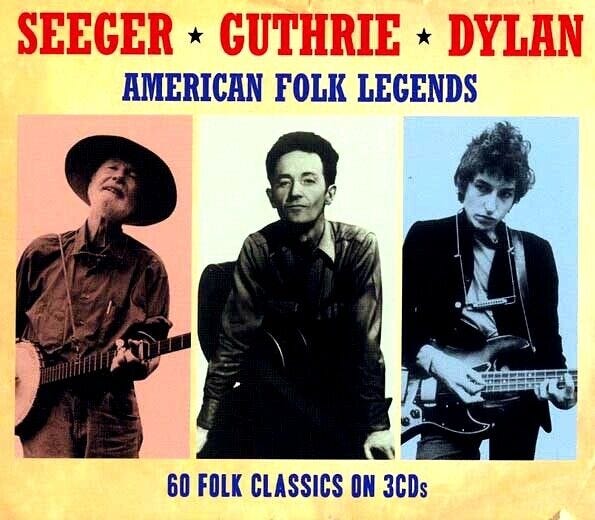

Lots of questions here, Ellen. It's going to take a while to think through them, but worth doing.
I was at my annual overlook on Independence Day, there were a dozen or so people there, some locals drinking and smoking pot (still illegal in PA) within the boundaries of Buchanon National Forest. When a DCNR ranger arrived, this would have been an automatic arrest.
It's my habit to take dogs and a six string and play for folks there, and when the ranger appeared I broke immediately into Waltzing Matilda. He stood and listened with everyone else then left the violators go with a warning.
A protest song is kinetic.